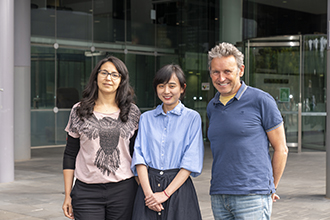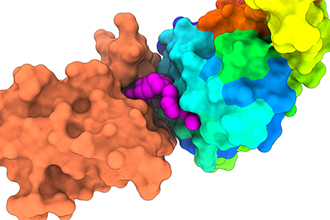Chiou S, Horne CR, Patel KM, Preaudet A, Rickard JA, Young SN, Jois A, Garnish SE, Hempel A, Hall C, Hildebrand JM, Kueh AJ, Silke J, Putoczki TL, Hawkins ED, Samson AL, Murphy JM. The kinase domain of RIPK3 tunes its scaffolding functions. Cell Death & Differentiation. 2026;:10.1038/s41418-026-01677-x
Gupta N, Trainor N, Radwan M, Nguyen S, Duncan L, Tang AX, Beveridge J, Silke N, Yousef J, Bilgilier C, Wachter J, Greb P, Jandova Z, Eliaš J, Kopf S, Gerstberger T, Stolt-Bergner P, Braun N, Weinstabl H, McConnell DB, Mauri F, Lucet IS, Silke J, Chessum NEA, Roy MJ. Expanding the toolbox to develop IAP-based degraders of TEAD transcription factors. Communications Chemistry. 2026;9(1):10.1038/s42004-025-01871-x
Liu L, Silke J. SIX of one and half-a-dozen USP2 regulating inflammation. Cell Research. 2025;35(10):10.1038/s41422-025-01173-w
Celentano A, Rickard JA, Low J, Silke N, Mohammed AI, Moslemi E, Ramani RS, De Souza Franca PD, Reiner T, McCullough MJ, Yap T, Silke J, O’Reilly LA. Enabling high-resolution diagnostic oral confocal laser endomicroscopy in mice. Methods. 2025;239:10.1016/j.ymeth.2025.04.015
Wang XS, Jiou J, Cerra A, Cobbold SA, Jochem M, Mak KHT, Corcilius L, Silke J, Payne RJ, Goddard-Borger ED, Komander D, Lechtenberg BC. The RBR E3 ubiquitin ligase HOIL-1 can ubiquitinate diverse non-protein substrates in vitro. Life Science Alliance. 2025;8(6):10.26508/lsa.202503243
Liu L, Silke J. AXIN2 is a non‐redundant regulator of AXIN1 stability and β‐catenin in colorectal cancer cells. The FEBS Journal. 2025;292(5):10.1111/febs.17336
Ramani RS, Tan I, Bussau L, O’Reilly LA, Silke J, Angel C, Celentano A, Whitehead L, McCullough M, Yap T. Convolutional neural networks for accurate real-time diagnosis of oral epithelial dysplasia and oral squamous cell carcinoma using high-resolution in vivo confocal microscopy. Scientific Reports. 2025;15(1):10.1038/s41598-025-86400-5
Lelliott EJ, Naddaf J, Ganio K, Michie J, Wang S, Liu L, Silke N, Ahn A, Ramsbottom KM, Brennan AJ, Freeman AJ, Goel S, Vervoort SJ, Kearney CJ, Beavis PA, McDevitt CA, Silke J, Oliaro J. Intracellular zinc protects tumours from T cell-mediated cytotoxicity. Cell Death & Differentiation. 2024;31(12):10.1038/s41418-024-01369-4
Anderton H, Bandala-Sanchez E, Simpson DS, Rickard JA, Ng AP, Di Rago L, Hall C, Vince JE, Silke J, Liccardi G, Feltham R. Correction to: RIPK1 prevents TRADD-driven, but TNFR1 independent, apoptosis during development. Cell Death & Differentiation. 2024;31(12):10.1038/s41418-024-01401-7
Nordmann TM, Anderton H, Hasegawa A, Schweizer L, Zhang P, Stadler P-C, Sinha A, Metousis A, Rosenberger FA, Zwiebel M, Satoh TK, Anzengruber F, Strauss MT, Tanzer MC, Saito Y, Gong T, Thielert M, Kimura H, Silke N, Rodriguez EH, Restivo G, Nguyen HH, Gross A, Feldmeyer L, Joerg L, Levesque MP, Murray PJ, Ingen-Housz-Oro S, Mund A, Abe R, Silke J, Ji C, French LE, Mann M. Spatial proteomics identifies JAKi as treatment for a lethal skin disease. Nature. 2024;635(8040):10.1038/s41586-024-08061-0






